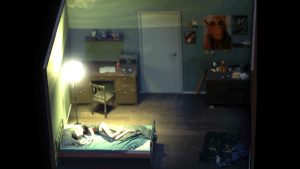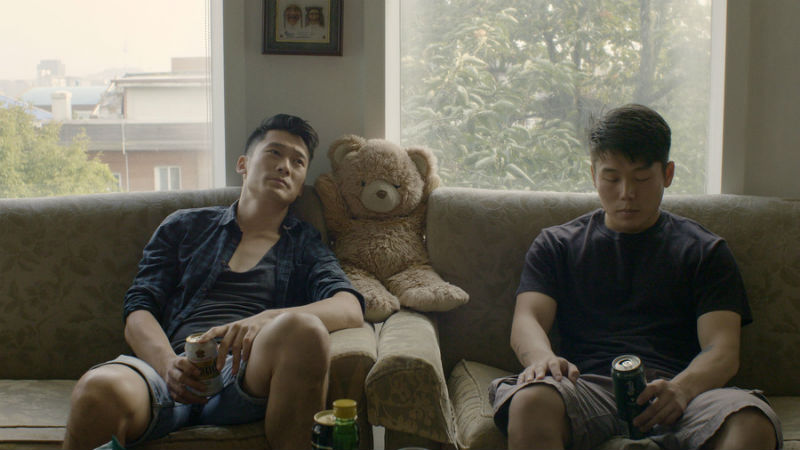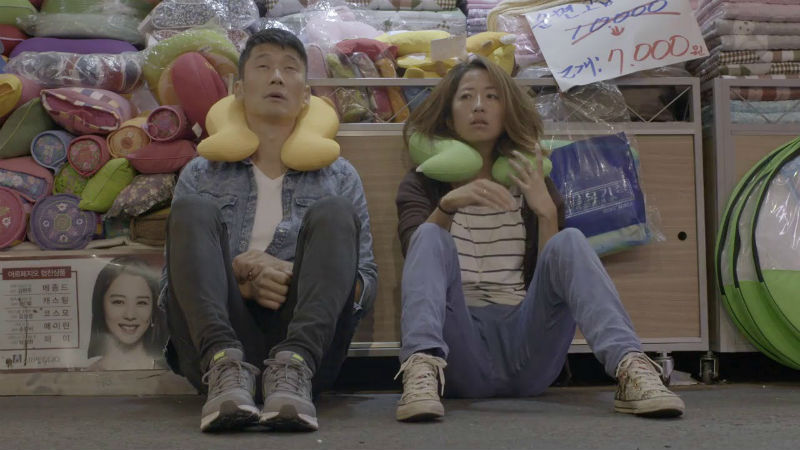This Argentinan short, although computer generated, has the feel of stop-motion. It brings to mind work by Lars Von Trier, the Brothers Quay, Alfred Hitchcock and David Lynch. A narrative conveyed by a series of disturbing vignettes (think: the opening minutes of Melancholia (Lars Von Trier, 2011) is put together with the same kind of fastidious technical attention to detail you find in the Quay Brothers’ films. A couple of scenes borrow directly from one of the murders in Psycho (Alfred Hitchcock, 1960), but in a clever way that shocks you much as those scenes in Psycho originally did. There’s a Lynchian feel about the whole thing – not just in the strange, quasi-industrial sounds recalling Eraserhead (David Lynch, 1977) or the weird lighting and heavily controlled mise-en-scène, but also in the overall feel of strange and terrible things happening within families and local communities, people adrift within the darkness of human existence.

One single viewing is not enough for this film which really only reveals itself on repeated viewings. There’s so much going on here in the characters of a father, a mother, a teenage boy and flashbacks to the teenager as a small baby. After the death of the father who is run over while drunk, the relationship between the son and the mother moves into abuse as she hits him for not eating his food and voyeurism as he spies on her through her bedroom keyhole, referencing similar scenarios in Blue Velvet (David Lynch, 1986) and, again, Psycho. Added to the mix are an animal corpse, a gratuitous rabbit killing and human murders. One particularly shocking scene involves the boy’s estranged friend kissing a girl near an abandoned, wrecked car and the boy hurling a brick at the amorous couple from behind a wall.
The vignettes make the locations appear as model sets suspended in darkness, each built upon a square patch of ground lifted from a wider Cartesian grid. These scenes don’t just appear then disappear in time, their appearance is also isolated spatially from everything around them. It’s an extremely unsettling experience and a unique, highly idiosyncratic vision. One can imagine Casavecchia going on to further forays short or feature length, animation or live action. If he does start working in live action, I hope he keeps returning to animation too because his use of the medium is part of the reason the film works as well as it does here – and it feels as if he has a great deal more to offer audiences.
Drive (Pulsión) played in Annecy where it won a jury distinction for powerful storytelling. Watch the film trailer below:










